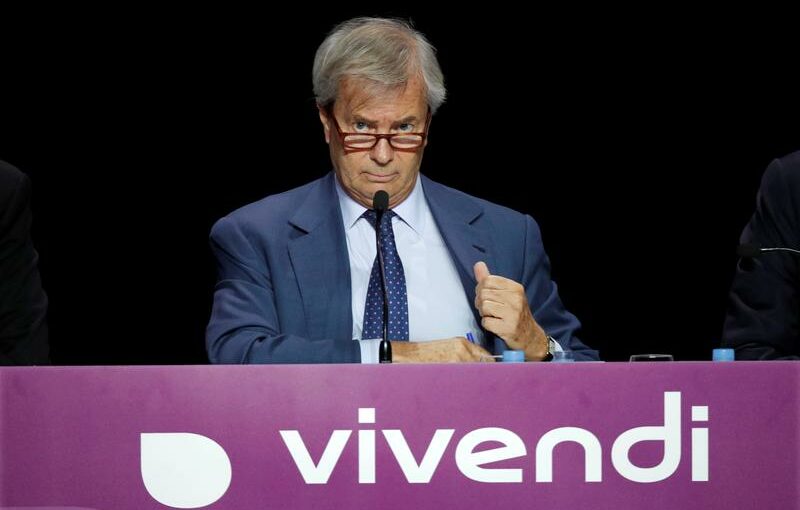PARIS (Reuters) – French tycoon Vincent Bollore will retain strong influence over Universal Music Group as a major shareholder following its planned 30-billion-euro ($36 billion) spin-off on the stock market by media conglomerate Vivendi .
Vivendi is seeking to extract the most value from its crown-jewel asset, the world’s biggest music label and home to singers such as Lady Gaga and Taylor Swift, as the music industry rebounds from a long downturn thanks to streaming revenues.
The French conglomerate outlined plans at the weekend to distribute 60% of Universal’s capital to its current shareholders via a listing in Amsterdam.
The news triggered a rally in Vivendi’s shares in early Paris trading on Monday, valuing the group close to 31 billion euros ($38 billion).
Vivendi’s market value is about the same as the enterprise value that it placed on Universal before it sold two blocs of 10% in the music label to a consortium led by Chinese group Tencent, in March 2020 and January this year.
“The whole transaction is aimed at freeing up the hidden value of Vivendi, whose market value has been inferior to that of Universal’s itself lately,” a source close the matter said.
At the end of this IPO process, which has to be approved by a shareholders meeting at the end of March, Universal’s three biggest shareholders would be Vivendi (20%), the Tencent-led consortium (20%) and Bollore (16%).
As Bollore controls Vivendi via a 27% stake, this means directly and indirectly he will control some 36% of Universal.
Vivendi had previously said that it would list Universal by the start of 2023 at the latest.
However several institutional investors pressed the conglomerate to move more quickly, to take advantage of financial markets flush with cheap money, prompting Bollore to accelerate the timetable, according to the same source.
Bollore chose Amsterdam over other international financial centres, such as New York, to list the company, because it is “neutral” and more attractive to potential investors from China, including Tencent, which had been targeted by the previous U.S. administration, the source close to the matter added.
MUSIC STREAMING BOOM
Universal’s capital distribution will take the form of a special dividend, under the plans to list the music label, which competes with the likes of Warner Music Group and Sony Music Entertainment.
Several analysts welcomed the proposals, citing investors’ unabated appetite for content providers after the listing of Warner, and the revival of the music industry on the back of streaming revenues.
“This is what many shareholders have wanted and is a better outcome than Vivendi selling some of its UMG stake in an IPO,” JPMorgan said in a note, adding that it estimated Universal’s value was about 40 billion euros.
After a 15-year downturn, the music industry has rebounded in the past five years, with global recorded music revenues increasing by 8.2 percent in 2019 to $20.2 billion, according to the latest annual report by record industry trade group IFPI.
Streaming revenues have represented the bulk of the growth over the pas few years, pushing the share of streaming revenues to 56% in 2019, driven by 341 million paid subscribers.
Music streaming Spotify, the market leader, and rival Apple Music are the driving forces behind that trend.
($1 = 0.8244 euros)
Source: Read Full Article
